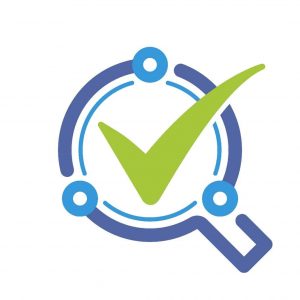Governance, Risk, and Compliance Training

Governance is the management approach that directs and controls the entire organization, using a combination of management information and hierarchical management control structures. Governance activities ensure that critical management information is sufficiently complete, accurate and timely to enable appropriate management decision making, and provide the control mechanisms to ensure that strategies, directions and instructions are carried out systematically and effectively. Risk management identifies, analyzes, and, where necessary, responds appropriately to risks that might adversely affect realization of the organization’s business objectives. The response to risks typically involves controlling, avoiding, accepting or transferring them to a third party. Compliance means conforming to stated requirements and assess the state of compliance, assess the risks and potential costs of non-compliance against the projected expenses to achieve compliance, and hence prioritize, fund and initiate any corrective actions deemed necessary.
General Data Protection Regulation (GDPR)
What is General Data Protection Regulation (GDPR)?
The General Data Protection Regulation (GDPR) is a regulation that will enforce a stronger data protection regime for organizations that operate in the European Union (EU) and handle EU citizens’ data. GDPR constitutes the protection of personal data of employees, customers and others. In case organizations fail to comply with this regulation, they will be subject to heavy fines and damaged reputation. Considering that personal data represents critical and sensitive information that all organizations should protect, such a regulation will help put in place appropriate procedures and controls to prevent Information Security breaches. By May 2018, all organizations that operate in the EU should comply with this regulation.
Why is the General Data Protection Regulation important for you?
Considering that data breaches have become highly sophisticated in the recent years, the need for data protection has increased as well.
Information Security is crucial to the success of any organization since it deals with the protection of sensitive data from unauthorized access, use, replication and destruction. As such, organizations should put in place measures and controls to manage and diminish Information Security risks and comply with GDPR requirements. In case organizations fail to comply with the GDPR requirements, the penalties can reach up to 2% of an organization’s annual turnover. Also, in case of more serious infringements, the penalties can amount to 4% of an organization’s annual revenue. The implementation of a Privacy Framework, on the other hand, will allow professionals to develop and implement reliable controls that are generally accepted.
What are the Benefits of Data Protection Training?
- Protect an organization’s reputation
- Minimize security incidents
- Build customer trust
- Retain existing customers and attract new customers
- Facilitate data access
- Ensure a stronger enforcement of rules
- Enable accurate storage of customer data
- Enable adequate access control
Becoming a Certified Data Protection Officer will enable you to acquire the necessary expertise to understand the risks that could have a negative impact on your organization and implement the required strategic responses based on the GDPR best practices, requirements and principles.
General Data Protection Regulation Course
Risk Management Training (ISO 31000)
What is Risk Management Training (ISO 31000)?
ISO 31000 specifies principles and guidelines for risk management for identifying, assessing and mitigating risks faced by organizations. It recommends organizations to develop, implement and continuously improve a framework that aims to integrate risk management processes into the organization’s overall governance, strategy, and planning, management, reporting processes, policies, values and culture. This framework can be used regardless of the type of risk and organization on deck; it will help organizations to protect their financial stability and reputation.
Why is Risk Management important for you?
ISO 31000 will guide you toward identifying potential risks that could endanger the achievement of crucial objectives; it will help you to determine which risks are essential to take in order to achieve primary objectives before they affect the business, while effectively keeping all other risks under control.
Furthermore, becoming ISO 31000 certified proves that you have undergone the proper professional training; further advancing your risk management and risk identification skills. Nonetheless, helping you to formulate and correctly implement strategies and solutions to improve and protect the needs of the organization. Attending our training courses will be beneficial for you because it makes you more marketable to employers, as nowadays professional certifications are crucial.
Benefits of Risk Management (ISO 31000)
Certified ISO 31000 individuals involved in risk management process of an organization will enable the organization to:
- Gain competitive advantage – enhanced risk management will support achieving goals and objectives
- Reduce costs through proper risk management
- Respond to change effectively and find viable solutions
- Create and protect value
- Increase the likelihood of achieving objectives
- Productively identify the opportunities and threats
- Identify and mitigate the risk throughout the organization
- Gain stakeholder confidence and trust
- Create a consistent basis for decision making and planning







